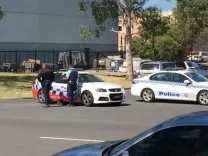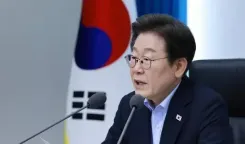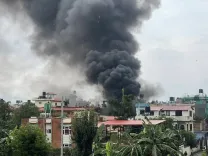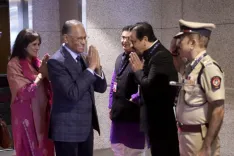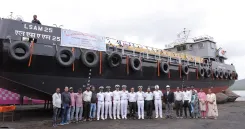Congo President to Establish 'Unity' Government Amid Security Crisis
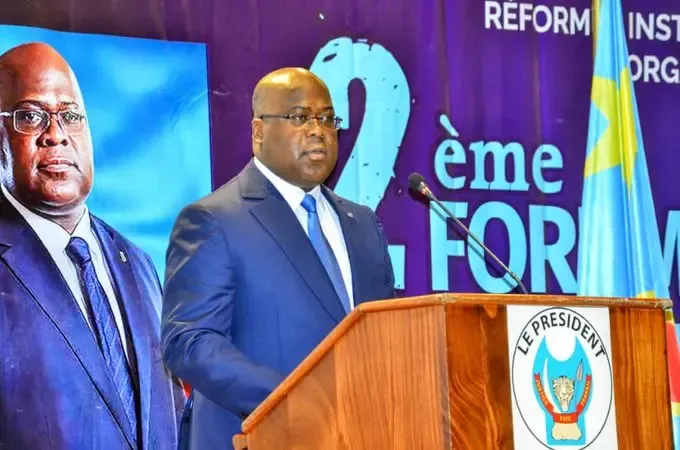
Synopsis
Key Takeaways
- Formation of a unity government to address security concerns.
- Focus on military and political reforms to tackle internal betrayals.
- Ongoing conflict with M23 rebels jeopardizing regional stability.
- International diplomatic efforts underway to broker peace.
- UN resolution demands ceasefire and withdrawal of foreign forces.
Kinshasa, Feb 24 (NationPress) The President of the Democratic Republic of the Congo (DRC), Felix Tshisekedi, has declared significant transformations, including the establishment of a 'government of national unity' aimed at averting the security crisis in the eastern regions from escalating into a larger regional conflict.
A spokesperson from the presidency mentioned on platform X, 'The President of the Republic is indeed moving towards a Congolese national unity government and changes within the leadership of the Sacred Union.' Further details were not provided.
On Saturday, President Tshisekedi convened with members of the Sacred Union, which is the ruling parliamentary coalition that includes his Union for Democracy and Social Progress (UDPS) alongside allied parties.
The primary focus of the meeting was the prevailing security situation, characterized by the advances of the March 23 Movement (M23) rebels, who have seized numerous towns and cities, including Goma and Bukavu, the capitals of North Kivu and South Kivu provinces.
Tshisekedi emphasized the necessity for changes on both political and military fronts, advocating for a 'complete overhaul' of the army to tackle security issues and 'internal betrayals.'
'The battle will be arduous, but we will not surrender. We must dismantle this system,' stated the DRC President during the Saturday discussion, firmly rejecting any chances of direct negotiations with the M23 rebels.
On Friday, the United Nations Security Council unanimously passed a resolution urging M23 rebels to halt their offensive in eastern DRC and called for Rwandan forces to cease their support for the armed group and withdraw from the region.
The DRC has accused Rwanda of backing M23, while Rwanda claims that the Congolese army has allied with the Democratic Forces for the Liberation of Rwanda, a Rwandan rebel faction implicated in the 1994 genocide against the Tutsi ethnic group.
'We are undoubtedly achieving diplomatic advancements, but we must stay cautious and proactive,' mentioned Tshisekedi.
Diplomatic initiatives have been initiated at both international and regional levels, most recently during the 38th African Union (AU) Summit, which called for an 'immediate and unconditional' ceasefire and the 'immediate withdrawal' of M23.
However, peace efforts have consistently faced setbacks. A planned AU-led summit in December, part of the Luanda Process peace initiative designed to bring Tshisekedi and Rwandan President Paul Kagame to negotiations, was abruptly canceled.
UN Under-Secretary-General for Peace Operations, Jean-Pierre Lacroix, cautioned on Friday that the conflict in the DRC could escalate into a wider regional crisis. 'The potential for regional spillover from the conflict in the DRC is a reality,' Lacroix stated on platform X, reflecting concerns echoed by numerous international and regional leaders, as reported by Xinhua news agency.
'A regional escalation must be avoided at all costs,' declared UN Secretary-General Antonio Guterres at the AU summit in Addis Ababa. 'There is no military solution. The deadlock must end, and dialogue must commence.'
The mineral-rich eastern DRC remains a significant conflict factor as various factions vie for control over resources such as coltan, tin, tantalum, and gold.
Since February, more than 400,000 Congolese, primarily women and children, have sought international protection in Burundi, as reported by the UN High Commissioner for Refugees. In North Kivu, over 500,000 individuals were displaced from their homes just in January.

